79 results
Chapter 5 - The Blending of Pagan and Christian Elements in Book III of the Consolatio
-
-
- Book:
- Boethius’ ‘Consolation of Philosophy’
- Published online:
- 23 May 2024
- Print publication:
- 30 May 2024, pp 82-97
-
- Chapter
- Export citation
Conclusion: The Cambridge Platonists as Early Modern Christian Platonists
-
- Book:
- The Cambridge Platonists and Early Modern Philosophy
- Published online:
- 09 May 2024
- Print publication:
- 16 May 2024, pp 286-296
-
- Chapter
- Export citation
6 - Is God an Arbitrary Tyrant?
- from Part II - Rival Conceptions of God and Goodness:
-
- Book:
- The Cambridge Platonists and Early Modern Philosophy
- Published online:
- 09 May 2024
- Print publication:
- 16 May 2024, pp 141-175
-
- Chapter
- Export citation
2 - ‘Plato and His Scholars’:
- from Part I - The Origins of Cambridge Platonism
-
- Book:
- The Cambridge Platonists and Early Modern Philosophy
- Published online:
- 09 May 2024
- Print publication:
- 16 May 2024, pp 30-60
-
- Chapter
- Export citation
Chapter 14 - Platonist Notions and Forms
-
-
- Book:
- Conceptualising Concepts in Greek Philosophy
- Published online:
- 25 April 2024
- Print publication:
- 02 May 2024, pp 330-344
-
- Chapter
- Export citation
Chapter 9 - Ontological Considerations
- from Part III - Epistemology and Ontology
-
- Book:
- Numerical Cognition and the Epistemology of Arithmetic
- Published online:
- 15 March 2024
- Print publication:
- 28 March 2024, pp 200-217
-
- Chapter
- Export citation
TOLKIEN'S UNIQUE RECEPTION OF PYTHAGOREAN ‘DISSONANCE’ IN THE AINULINDALË OF THE SILMARILLION
-
- Journal:
- Greece & Rome / Volume 71 / Issue 1 / April 2024
- Published online by Cambridge University Press:
- 06 March 2024, pp. 1-21
- Print publication:
- April 2024
-
- Article
-
- You have access
- Open access
- HTML
- Export citation
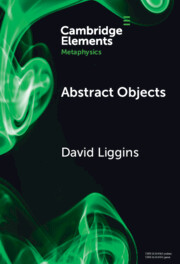
Abstract Objects
-
- Published online:
- 05 February 2024
- Print publication:
- 29 February 2024
-
- Element
-
- You have access
- HTML
- Export citation
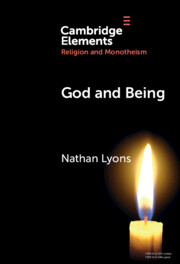
God and Being
-
- Published online:
- 30 November 2023
- Print publication:
- 21 December 2023
-
- Element
- Export citation
6 - The Life in Accordance with Nature
-
- Book:
- Augustine on the Nature of Virtue and Sin
- Published online:
- 10 January 2024
- Print publication:
- 23 November 2023, pp 207-239
-
- Chapter
- Export citation
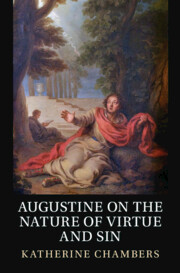
Augustine on the Nature of Virtue and Sin
-
- Published online:
- 10 January 2024
- Print publication:
- 23 November 2023
5 - Augustine’s Place within the Eudaimonist Tradition
-
- Book:
- Augustine on the Nature of Virtue and Sin
- Published online:
- 10 January 2024
- Print publication:
- 23 November 2023, pp 163-206
-
- Chapter
- Export citation
4 - Augustine’s Definitions of Virtue
-
- Book:
- Augustine on the Nature of Virtue and Sin
- Published online:
- 10 January 2024
- Print publication:
- 23 November 2023, pp 119-162
-
- Chapter
- Export citation
Chapter 1 - Theories of Prophecy in Philo of Alexandria
- from Part I - Philosophical Perspectives on Divination, Revelation, and Prophecy
-
-
- Book:
- Divination and Revelation in Later Antiquity
- Published online:
- 19 October 2023
- Print publication:
- 02 November 2023, pp 17-31
-
- Chapter
- Export citation
19 - Female Characters as Modes of Knowing in Late Imperial Dialogues: The Body, Desire, and the Intellectual Life
-
-
- Book:
- The Intellectual World of Late Antique Christianity
- Published online:
- 05 October 2023
- Print publication:
- 26 October 2023, pp 347-365
-
- Chapter
- Export citation
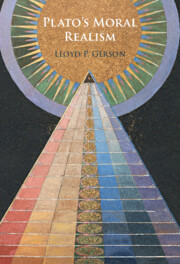
Plato's Moral Realism
-
- Published online:
- 28 July 2023
- Print publication:
- 24 August 2023
Chapter 1 - Allegories of Love
- from Part I - Ars memoriae, ars amatoria
-
-
- Book:
- Memory and Affect in Shakespeare's England
- Published online:
- 07 June 2023
- Print publication:
- 27 July 2023, pp 25-43
-
- Chapter
-
- You have access
- HTML
- Export citation
Chapter 4 - In the Spirit of Plato
-
-
- Book:
- The Cambridge Companion to Plutarch
- Published online:
- 29 June 2023
- Print publication:
- 13 July 2023, pp 79-100
-
- Chapter
- Export citation
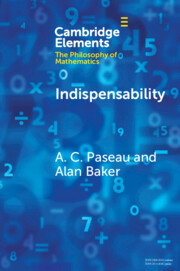
Indispensability
-
- Published online:
- 16 May 2023
- Print publication:
- 08 June 2023
-
- Element
- Export citation
A NEW TESTIMONIUM FOR NUMENIUS: PROCLUS ON THE ORIGIN OF EVIL
-
- Journal:
- The Classical Quarterly / Volume 73 / Issue 1 / May 2023
- Published online by Cambridge University Press:
- 15 June 2023, pp. 484-488
- Print publication:
- May 2023
-
- Article
-
- You have access
- Open access
- HTML
- Export citation



